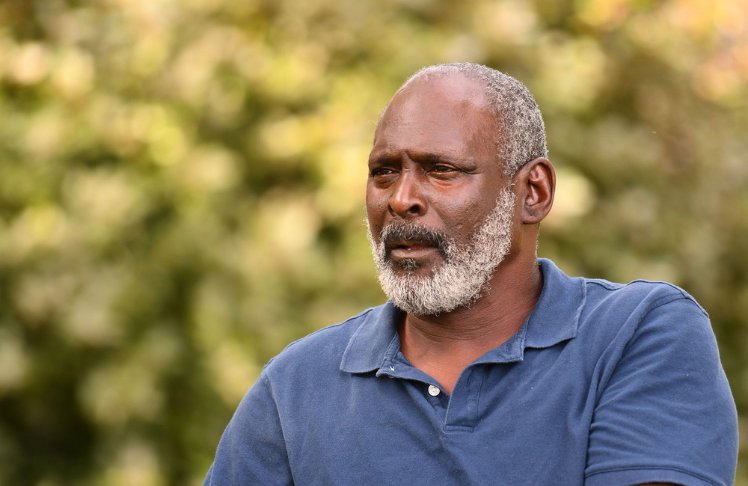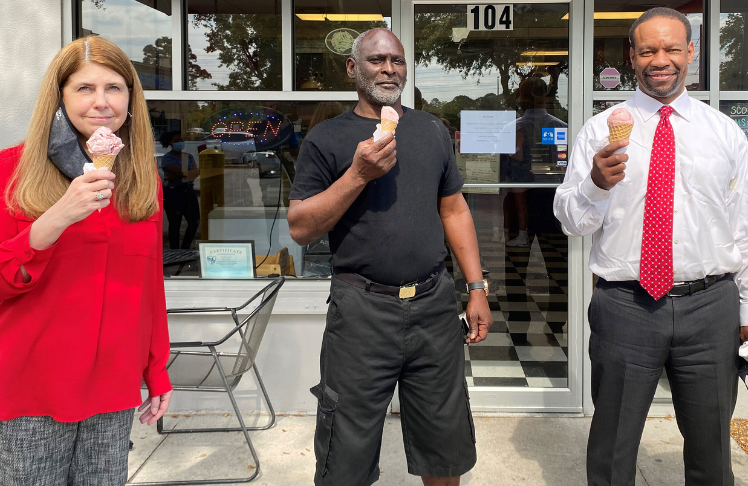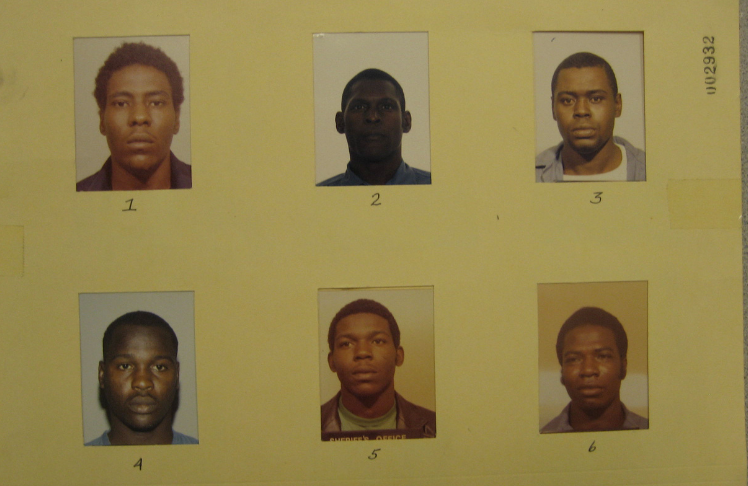
By Eliott C. McLaughlin, CNN
Crosley Green has received the news he didn’t want to hear — a federal appeals panel is reinstating his vacated 1990 murder conviction — but the fight to prove his innocence is not over, and he remains at peace knowing “everything’s going to work out as it should, as it’s supposed to.”
On Wednesday, one of the original investigators in the Florida case, a law enforcement officer of 38 years, joined Green, his family and legal team to tell reporters she took an oath to protect and serve, and she believes to this day Green was wrongly accused. The story offered by prosecutors simply “didn’t add up to me,” she said.
“In this particular case with Crosley Green, the truth is hidden,” said Diane Clarke, who was a sergeant with the Brevard County Sheriff’s Office at the time of the murder. “He spent half of his life in prison for something I don’t believe he did.”
Though he remains under court monitoring, Green’s been working at a machine grafting facility, attending church every Sunday and spending as much time as he can with family and friends, especially the nieces, nephews and grandkids he missed meeting while in prison for almost 32 years. He’s not letting any court ruling get him down as he puts his life back together, he said.
“I’ve got great attorneys. I put my faith in the Lord. They’re doing all they can for me. I sit back and don’t worry about anything. I’m just carrying on with life, everyday life,” he said on a Wednesday video conference call.
Legal team lays out battle plan
Green’s defense is asking the case be reheard before the full bench of 11 justices, and they expect a ruling in mid-May. They need six judges to get a new hearing.
Green’s defense says he spent more than three decades in prison after a prosecutor failed to provide exculpatory evidence to his original lawyers — namely, the fact that two of the investigators at the murder scene pointed to another suspect. Allowing a conviction to stand under such circumstances “could impact every criminal defendant going forward throughout the 11th Circuit — Florida, Georgia, and Alabama,” attorney Keith Harrison said in a news release.
Prosecutors have a duty to play by the rules, and that did not happen in Green’s case, fellow defense attorney Jeane Thomas said during a Wednesday news conference.
“The (federal) district court said it didn’t happen, and that the evidence that was suppressed went to the heart of the defense’s theory that someone else committed this crime. That was the evidence that was withheld. There’s no dispute that it was withheld, but what happened on appeal before the 11th Circuit is they said, ‘It wouldn’t have mattered. (Prosecutors) withheld it, but it wouldn’t have really made a difference in the outcome of the trial,'” she said.
Clarke was never called to the stand to share her doubts. Thomas posed the question: “Do you think it would’ve mattered, if you were defending Crosley, to be able to ask her, ‘Why do you think someone else did it? And why did you tell the prosecutor someone else did it, and they did nothing about it?’ They didn’t follow these leads. They didn’t do an investigation. Is that really something that didn’t prejudice Crosley, that didn’t matter to the outcome of his trial?”
Green took the podium to say this case was bigger than the individual circumstances of the case. It is about justice because “what happened to me could happen to you, to you, to you …” he said, pointing around the sanctuary of a Baptist church in Titusville.
The 64-year-old was convicted of fatally shooting Chip Flynn in 1990, based largely on the testimony of Flynn’s girlfriend, Kim Hallock, who told police Green shot Flynn as she escaped the scene in Flynn’s truck. Prosecutors also alleged that Green admitted the crime to others, that Hallock identified Green in a police lineup, and shoe prints and a tracking canine linked Green to the crime.
In 2018, US District Judge Roy Dalton ruled the original prosecutor had withheld from Green’s defense that Clarke and her partner, Mark Rixey, told prosecutors they suspected Hallock shot Flynn. Dalton deemed the omission a Brady violation, overturning Green’s conviction — meaning the state could either retry Green or release him.
State Attorney General Ashley Moody, who did not prosecute the case, stood by the original conviction and appealed the ruling, keeping Green imprisoned for almost three years until Dalton issued a ruling last year demanding Green’s release. Not only did Green face a heightened risk during the Covid-19 pandemic, Dalton ruled, but he also had been a model prisoner and posed no danger to the community.
Moody unsuccessfully countered that Green was safer in prison, given there were no active Covid-19 cases in Calhoun Correctional Institution. Her office declined late Wednesday to comment for this story, citing the pending motion for a rehearing.
Waiting game
Green was under house arrest, living with a relative in Titusville, while the 11th Circuit Court of Appeals took more than two years to examine his case.
Green was delighted with his freedom, he told CNN last year, despite not being able to leave his brother-in-law’s yard. He was passing time feeding squirrels in the backyard, enjoying strawberry ice cream and his sister’s homemade oxtails, and visiting with family and other visitors.
“There’s a lot of other freedom out there, but listen, this little bit of freedom I got right here is a whole lot compared to no freedom at all,” he said at the time.

He added that he wanted nothing more than to visit his sister’s grave in nearby Mims, where he was born, to pay his respects. Not being there for her when she passed was one of the most painful parts of being locked up, he said.
On Wednesday, he provided an update, saying he’d gotten a chance to visit Selestine Peterkin’s grave during a memory service last year.
“She was one of the strongest supporters I ever had. She was my rock. She was my everything,” he said. “I feel good. I’d feel much better if she was still here. This was the day she’d been looking forward to. She always told me, ‘I can’t wait till you come home.'”
Though he maintains a mostly sunny demeanor, he feels “kind of let down” knowing his house arrest prevents him from taking the youngsters in his family to a park or fast-food joint, “you know, what parents do with kids.” Some of his relatives live about 20 miles away, so it’s tough to connect as much as he’d like. Still, he took immense joy in playing Santa Claus during his first Christmas as a freed man last year — even if some relatives felt he went overboard with the gifting, he said with a laugh.
His sister, Shirley Green, told reporters Wednesday she urged her brother to take a plea deal in 1989. If he had, he would’ve been released 10 years ago, but he refused to confess to something he didn’t do, she said.
“He’s innocent. Half of his life has been taken away from him,” she said. “He done lost loved ones that he wasn’t (able) to say goodbye to. … Right now, all of us are here today for justice.”
Green felt confident last year that the federal court’s ruling would stand, he said. After all, he said, he’s innocent so he’s leaving the matter in God’s hands. He has full faith in the justice system, despite spending decades behind bars for something he didn’t do, he said.
But last month, after two years on the docket, a three-judge panel of the 11th Circuit ruled his original conviction would stand. Dismantling the lower federal court’s ruling, the panel found: There were no meaningful inconsistencies in Hallock’s story; two witnesses who recanted their original testimony were not credible; there was no evidence witnesses were coerced; Green’s alibi witnesses were not credible; evidence found in Flynn’s truck “undermines the value” of post-trial DNA evidence, and evidence regarding the fatal bullet was not new.
Further, a hair found in the vehicle at the scene may have come from Green, the panel ruled, saying, “The analysis revealed that the hair could not have come from 99.58% of the population. However, Green is a member of the 0.42% of the population from which it could have come.”
The judges concluded, “Having considered Green’s new evidence of innocence alongside the evidence of guilt, Green has failed to demonstrate that ‘it is more likely than not that no reasonable juror would have convicted (Green).'”
‘Nothing adds up’
Attorneys Harrison and Thomas of Crowell & Moring, an international law firm that’s fought pro bono for Green since 2008, have long cited a litany of problems with the evidence.
Four witnesses have recanted their testimony, they told CNN. In addition to the alibi witness who testified at trial, they’ve found nine more who say Green was doing drugs at a party in Mims, 2 miles from the crime scene, when the killing occurred, Harrison said.

Other issues the defense has raised include: Green’s fingerprints weren’t found at the scene; Green doesn’t know how to drive a stick shift like the one in Flynn’s truck; a canine officer used a questionable method to track shoe prints at the scene; the shoe prints found did not match Green’s lone pair of Reeboks; and the photo lineup presented to Hallock positioned Green’s picture, darker and smaller than five others, at the top center “bull’s-eye” spot, said Harrison, a former prosecutor.
“Nothing adds up. Nothing fits together,” Harrison said last year. “There’s a lot of facts in this case, and most of the facts point to Crosley’s innocence.”
On Wednesday, Harrison said he was disappointed in the 11th Circuit court decision. This is a case about “fair play” and what a constitutional system of law requires “before you lock up a man for the rest of his life.”
“The government, the prosecution didn’t play by the rules, and that is why Mr. Green was convicted,” he told reporters. “We believe the (US) District Court got it right.”
He vowed to keep fighting until Green is exculpated and said he has many avenues to appeal the 11th Circuit ruling.
Green is now in yet another phase of his protracted waiting game, but for him, nothing has changed. His focus is on learning how to be a solid friend and family man, the father of three said.
“Like I said, I’m still moving forward. I got no reason to turn around and be looking over my shoulder,” he said.
The-CNN-Wire
™ & © 2022 Cable News Network, Inc., a WarnerMedia Company. All rights reserved













